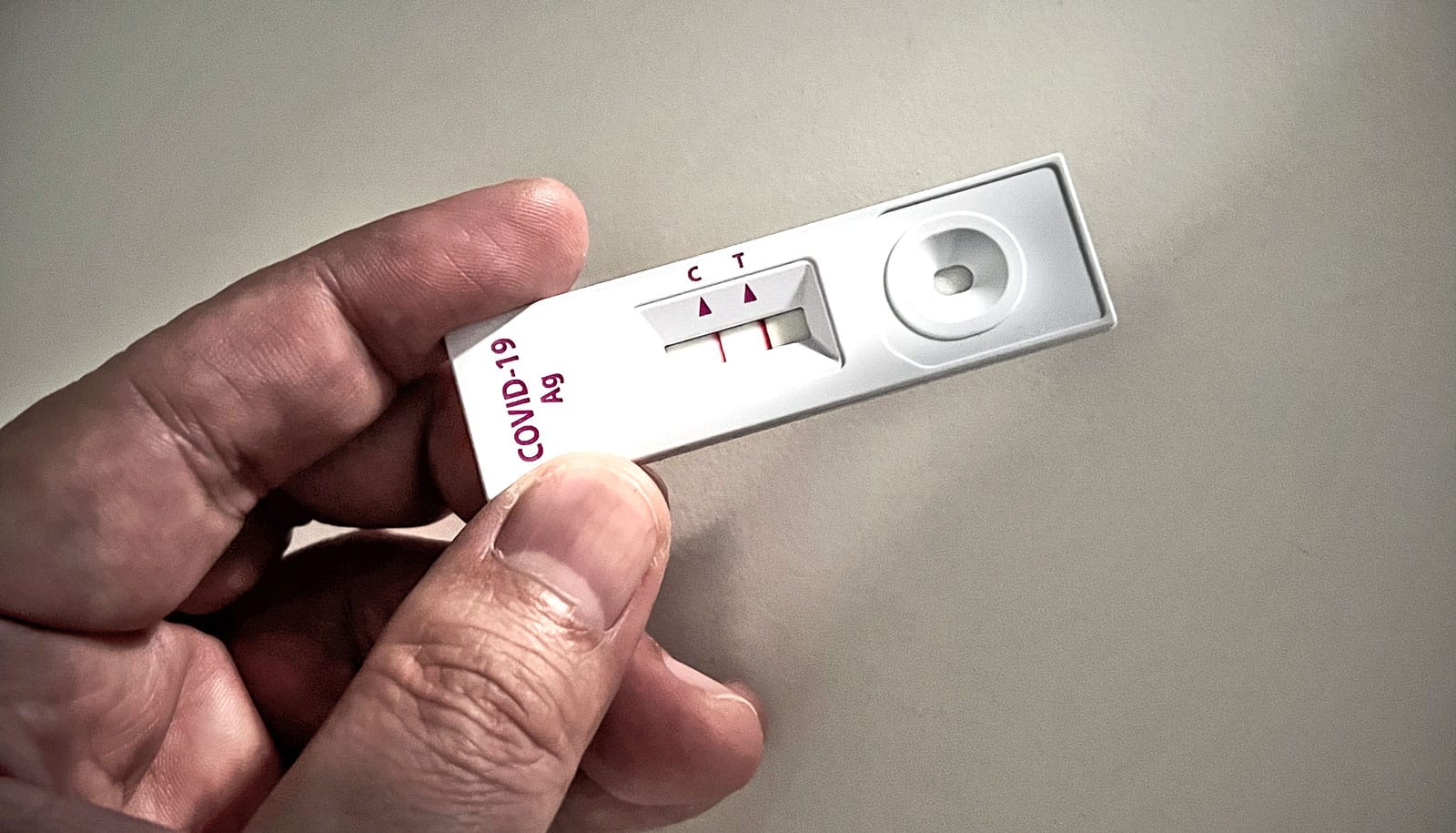New research evaluates how rapid tests will perform when challenged with future SARS-CoV-2 variants.
The availability of rapid antigen tests has significantly advanced efforts to contain the spread of COVID-19. But every new variant of concern raises questions about whether diagnostic tests will still be effective.
The new study in Cell attempts to answer these questions.
The researchers developed a novel method for evaluating how mutations to SARS-CoV-2 can affect recognition by antibodies used in rapid antigen tests.
Because most rapid antigen tests detect the SARS-CoV-2 nucleocapsid protein (N protein), the team directly measured how mutations to the N protein affected diagnostic antibodies’ ability to recognize their target.
“Based on our findings, none of the major past and present SARS-CoV-2 variants of concern contain mutations that would affect the capability of current rapid antigen tests to detect antibodies,” says first author Filipp Frank, an assistant professor in the department of biochemistry at Emory University. “Further, these data allow us to look one step ahead and predict test performance against almost any variant that may arise.”
The study used a method called deep mutational scanning to evaluate all possible mutations in the N protein in a single, high-throughput experiment. Researchers then measured the impact of the mutations on their interaction with antibodies used in 11 commercially available rapid antigen tests and identified mutations that may allow for antibody escape.
“Accurate and efficient identification of infected individuals remains a critically important strategy for COVID-19 mitigation, and our study provides information about future SARS-CoV-2 mutations that may interfere with detection,” says senior study author Eric Ortlund, a professor in the department of biochemistry. “The results outlined here can allow us to quickly adapt to the virus as new variants continue to emerge, representing an immediate clinical and public health impact.”
Findings show that it’s relatively rare for variants to have mutations to the N protein that allow them to evade diagnostic tests, but there are a small proportion of sequences that could affect detection. Researchers, public health officials, and test manufacturers can use these data to determine if a diagnostic test needs to be evaluated for its ability to detect these mutations or to inform future test design.
“Considering the endless cycle of new variants, the data from this study will be useful for years to come,” says Bruce J. Tromberg, director of the National Institute of Biomedical Imaging and Bioengineering (NIBIB) and lead for the Rapid Acceleration of Diagnostics (RADx) Tech program at National Institutes of Health.
While many variants of concern contain multiple mutations to the N protein, the study authors note that their method does not evaluate how multiple mutations could affect diagnostic antibody recognition, representing a limitation of the study.
Support for the project came from NIBIB as part of the RADx initiative.
Source: Emory University



